HIGHLIGHTS
GET TO KNOW US
GET INVOLVED
MEDIA
REGIONS
California, Georgia, Chicago, North Carolina, New Orleans, Puerto Rico, Kentucky, Navajo Nation, Washington, D.C., Hawaii
INTERNATIONAL
FUELED BY LOCAL HANDS
Building Community Resilience in the Wake of Hurricane Francine
In September 2024, CORE responded to Hurricane Francine, a Category 2 storm that slammed into Southern Louisiana. Francine caused widespread power outages, flooding, and structural damage. The impacted parishes are no strangers to natural disasters—the devastation from Hurricane Ida, the 2021 Category 4 storm, is still very present in memory and on the ground.
CORE enlisted its first cohort of volunteers, all of whom have diverse experience in disaster response, to support the response alongside team members from the Louisiana Just Recovery Network, Rural Roots, and SBP. Together, the team tarped homes, completed muck and gut services, and cleared dangerous tree debris.
Taking the lead from these local partners, our efforts supported underserved community members in Ascension Parish whose modular homes are particularly vulnerable to disaster and were unlikely to receive prompt relief from state or federal agencies.
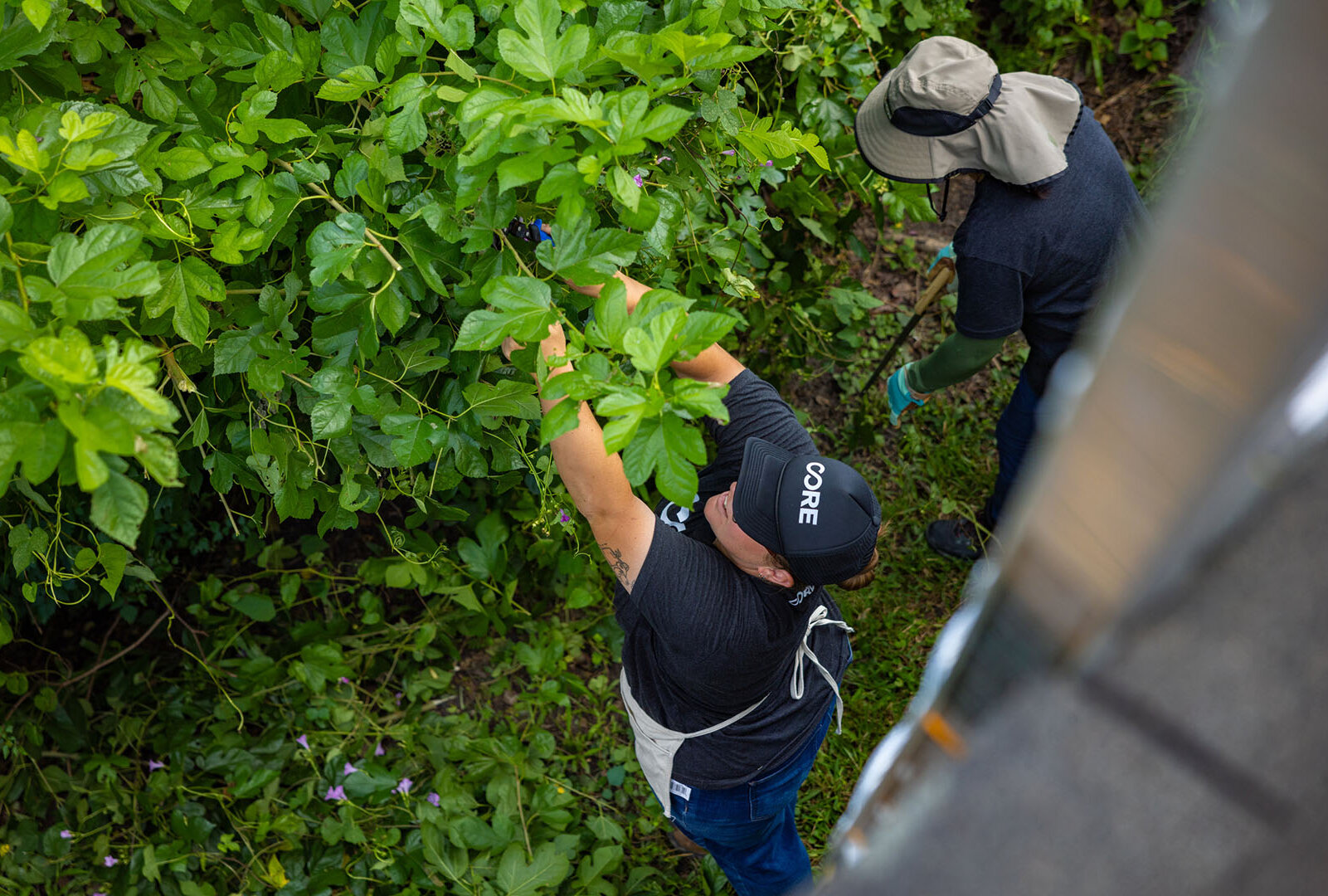
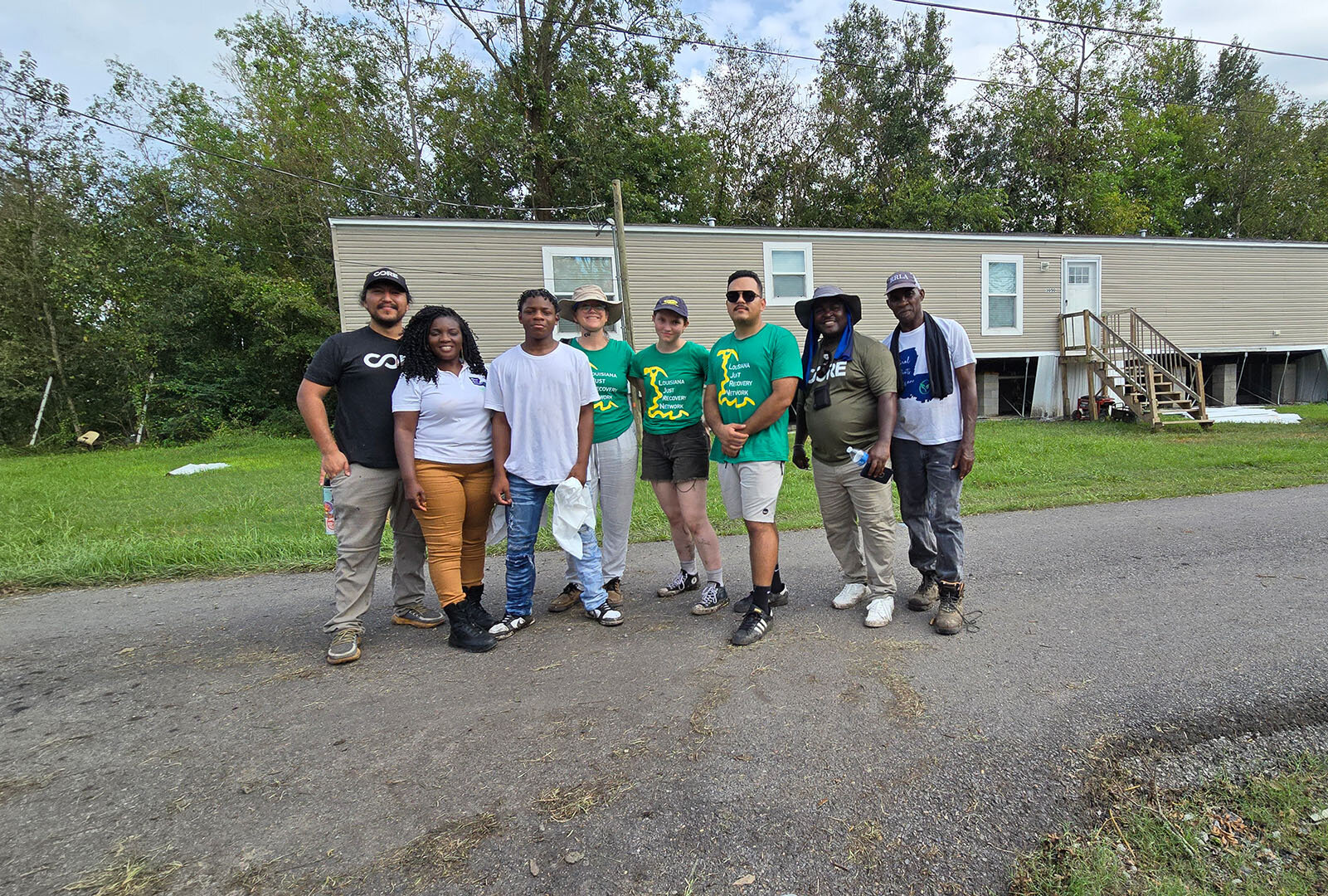
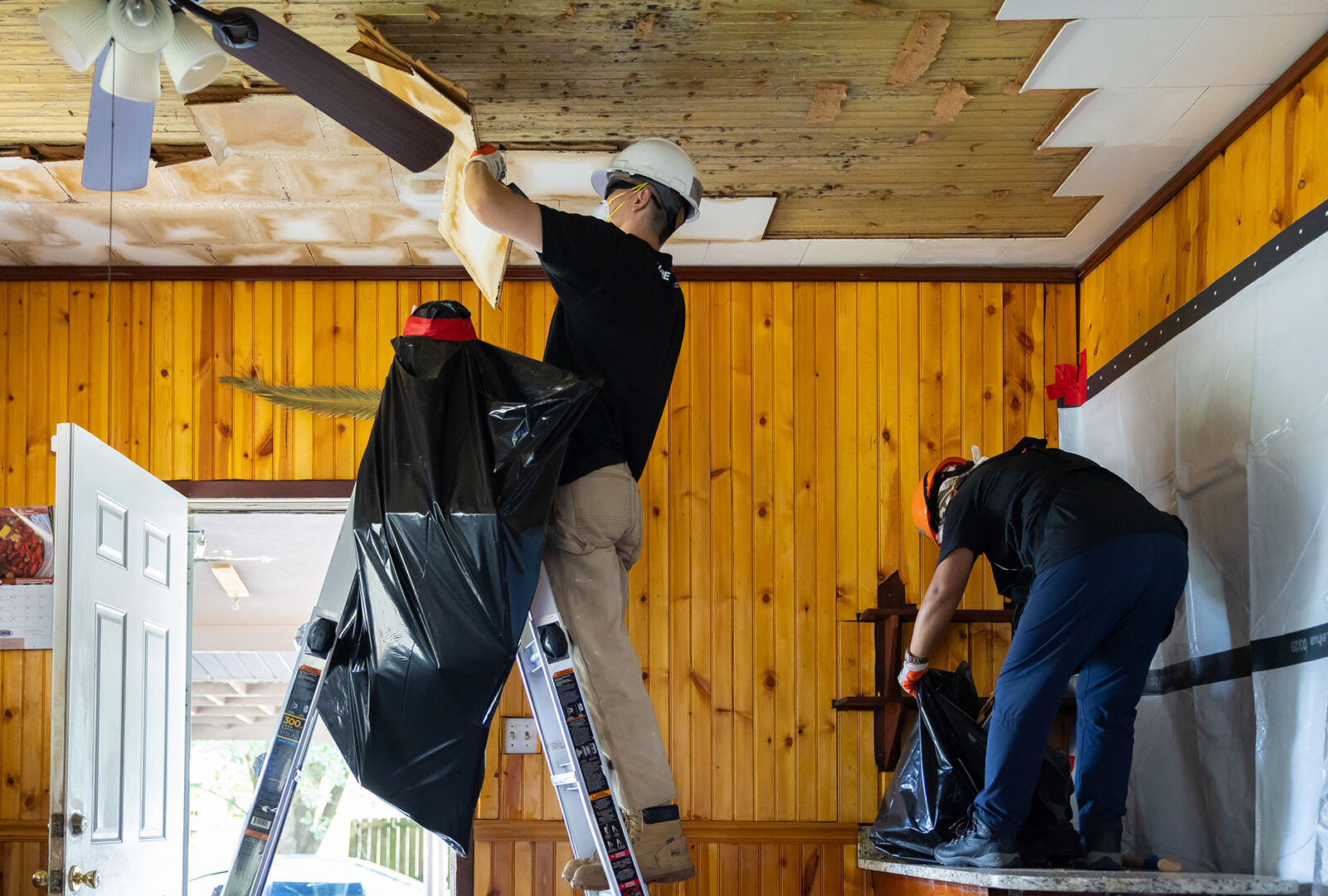
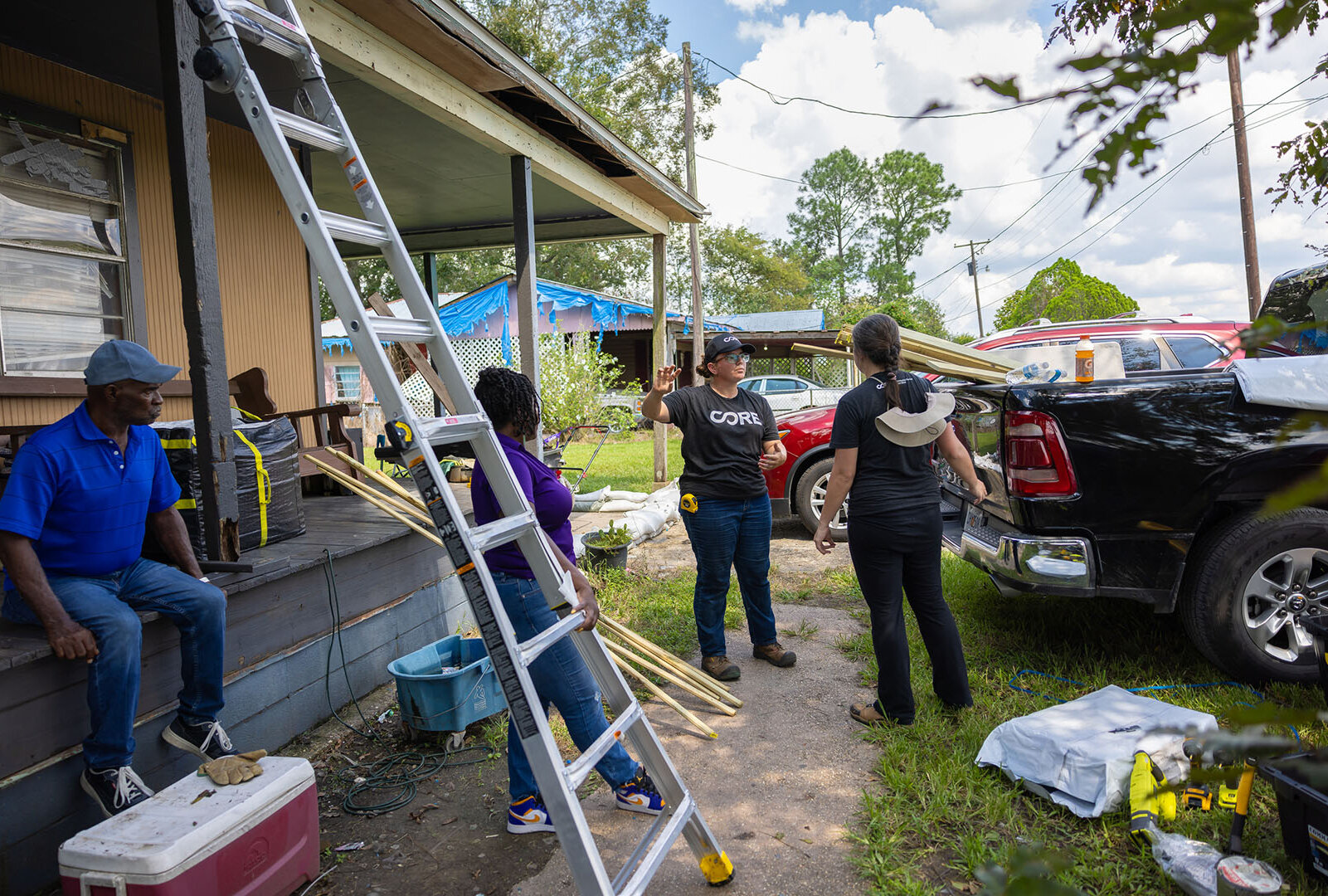
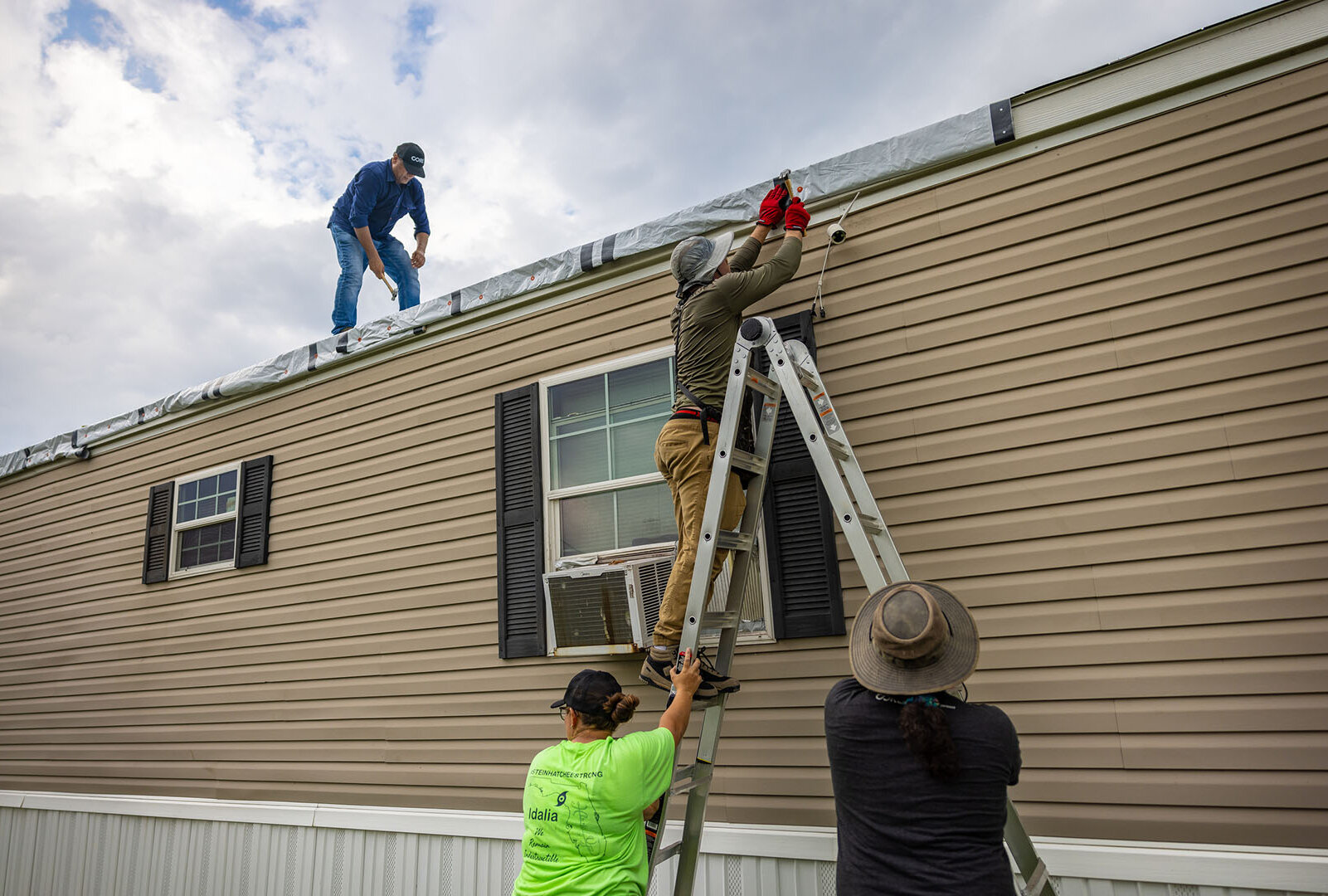
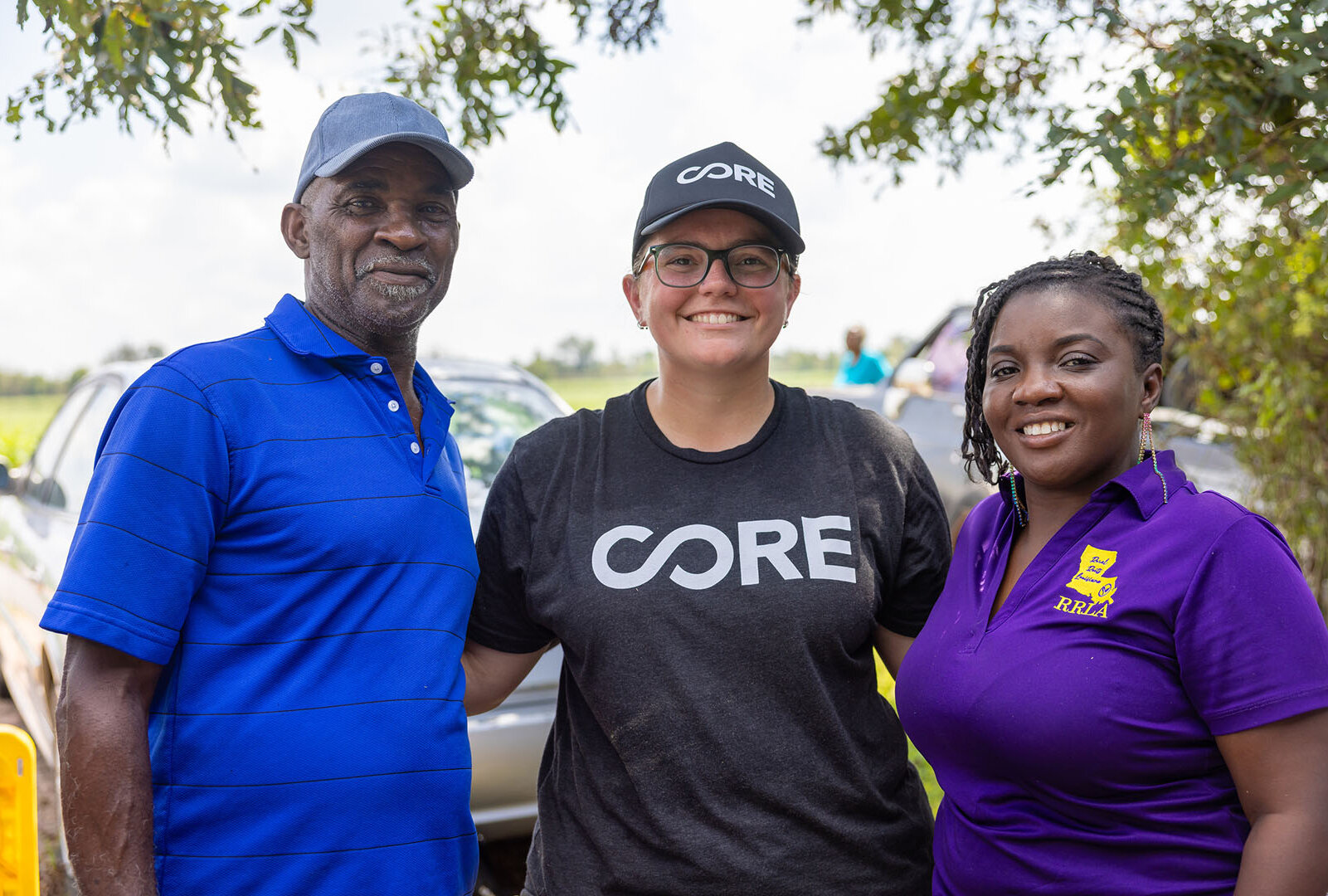
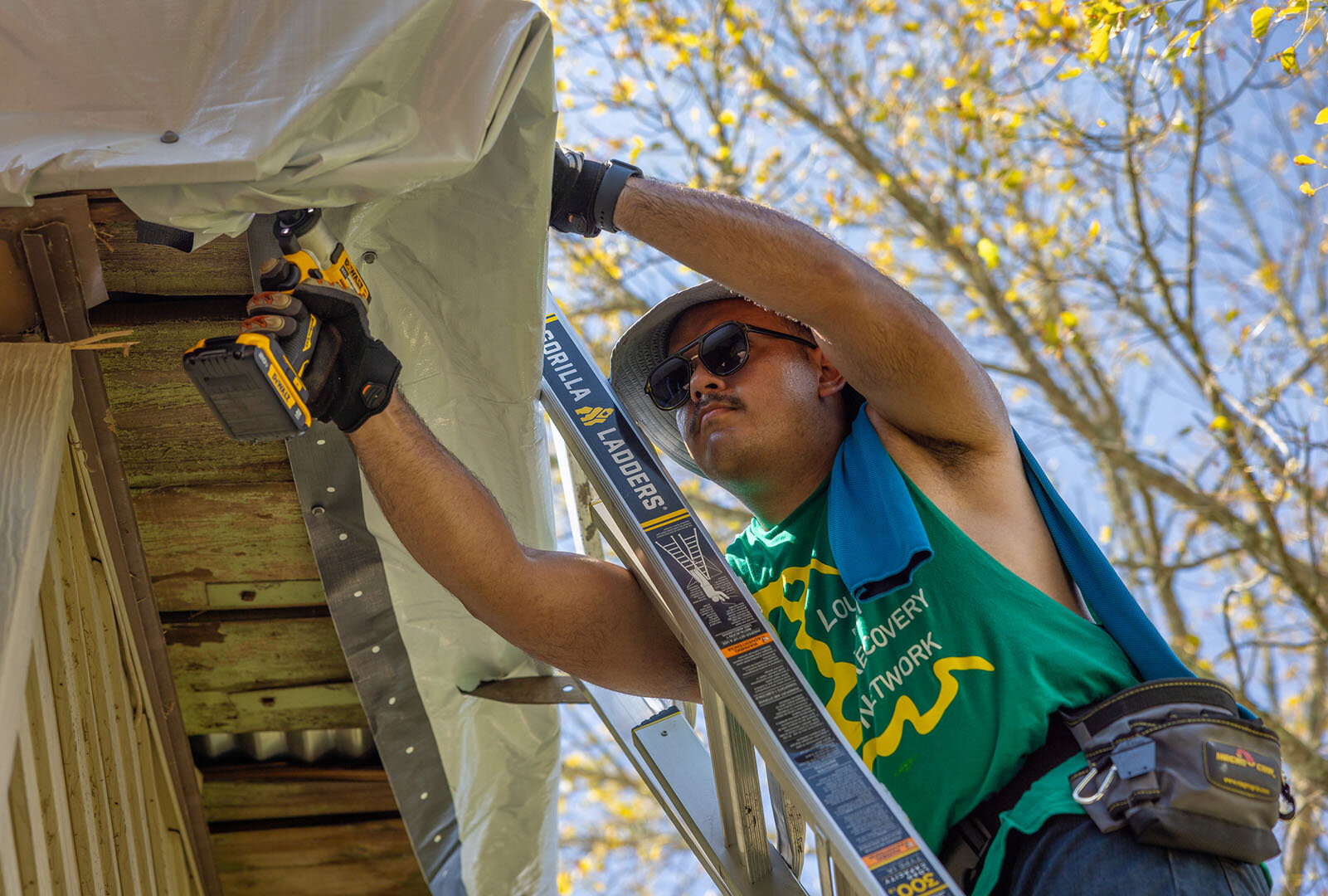
Toi Jean Carter
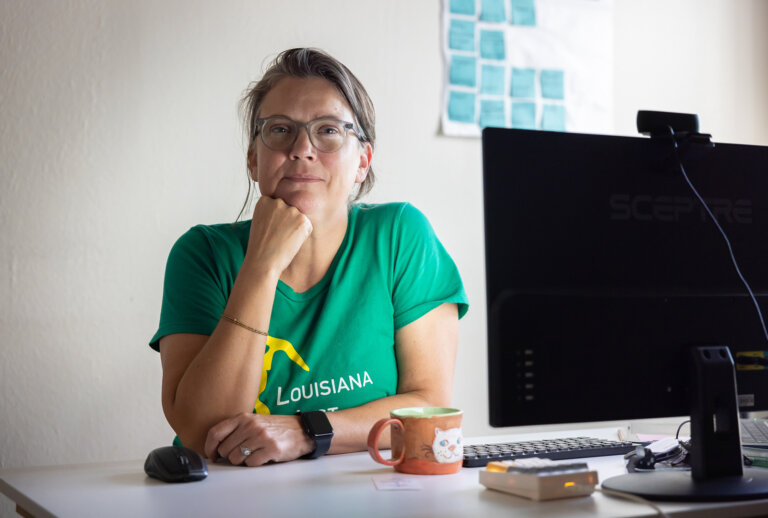
Toi Jean is the co-founder of Louisiana Just Recovery Network (LJRN), a Southern Louisiana-based organization that supports communities impacted by climate disasters and environmental injustice. Founded after Hurricane Ida in 2021, LJRN is rooted in community-driven disaster response and recovery. CORE’s regional team partnered with them early on to help expand their immediate response and long-term recovery and rebuilding capacity. After Francine, Toi Jean connected CORE with other grassroots organizations including Rural Roots to ensure we reached the neighborhoods most in need.
An environmental rights organizer and resident, Toi Jean has a deep understanding of the historic marginalization of communities in Southern Louisiana, particularly those clustered in and around Cancer Alley. The eruption of industrial plants in the area has had disproportionate health and environmental consequences for primarily poor, rural, and Black and Brown communities.
These same communities often bear the brunt of climate disasters like Francine, making the recovery process longer and more difficult with each event. Increasing the resilience of community members with targeted emergency relief and preparedness resources is at the forefront of both CORE’s and LJRN’s missions.
“It’s been beautiful to see how that network really comes together, that there is an international relief organization that understands the importance of the grassroots leadership really setting the direction and tone for where, how, and whom the resources flow to.”
Axel Gutierrez
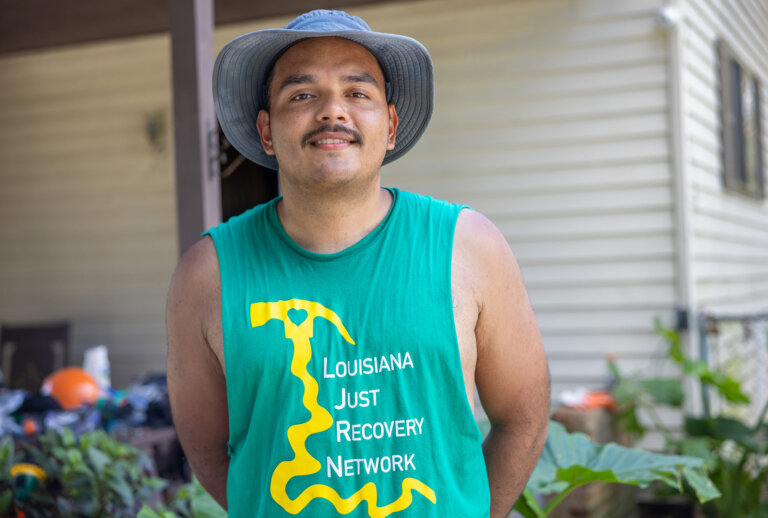
Originally from Honduras, Axel moved to New Orleans and became actively involved in public service. Axel is a firefighter for the City of New Orleans and a member of the U.S. Air Force. For the last two years, he’s also worked for the Louisiana Just Recovery Network supporting post-storm home repairs and more. He is deeply connected to the communities of Southern Louisiana and familiar with the unique barriers they face when it comes to disaster recovery.
Axel worked alongside CORE’s team to tarp and gut people’s modular homes in Donaldsonville, a small city in Ascension Parish. These activities are critical first steps in the rebuilding process, especially for those living in mobile or trailer homes who are elderly, have limited mobility, lack financial resources, or are otherwise unable to complete the physical work. While tarping roofs provides relief from future storms, muck and gutting is necessary to clear mud and water-damaged construction materials like insulation or floorboards. This was the second time Axel had worked with CORE’s emergency response team, the first being when he deployed to Florida to support our similar response to the devastating Hurricane Ian two years ago.
“This part of Louisiana is very neglected. Most people just focus on the city of New Orleans and that’s where most of the aid goes, but people should really look out for the other areas outside the cities as well.”
Kirsty Greeno
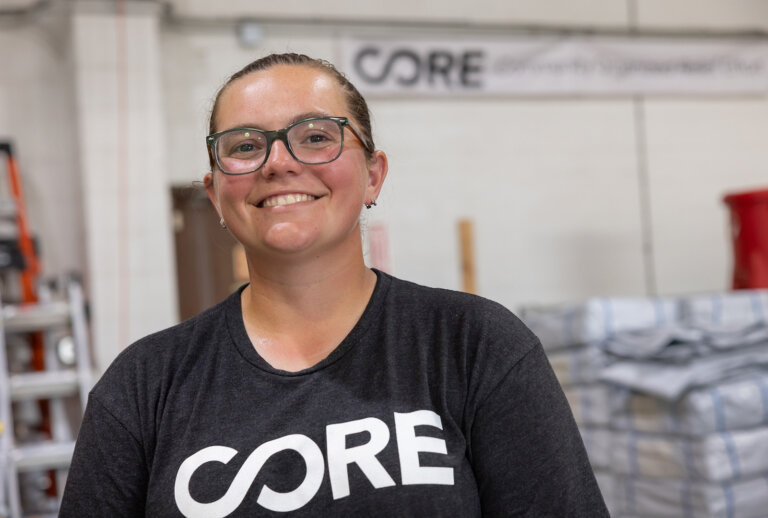
Kirsty works in construction by trade in Vermont, and she has traveled to 11 different disaster sites over the years to serve communities recovering from severe natural disasters. During four years with AmeriCorps, she helped communities recover from wildfires, tornadoes, and hurricanes; built homes in Montana with Habitat for Humanity; and supported underserved youth in several communities in California. She later joined a national disaster relief organization and supported responses to Hurricanes Ida and Ian and long-term recovery efforts for Katrina.
Kirsty developed hands-on experience in restoration and rebuilding efforts in disaster zones and grew her skillset to include operating chainsaws, mucking and gutting, and other post-disaster demolition skills. With CORE in Southern Louisiana, she took up a new tarping approach that provided more durable roof protection meant to shield homeowners from the elements for at least a year.
Beyond sustained physical and structural damage, Kirsty has seen firsthand the enduring emotional toll that disasters take on communities—especially those dealing with compounding devastation. That’s why she leads with compassion and empathy in every response, no matter the scale.
“I think it’s just so important for people to remember that the work doesn’t end when the news goes away or even when we leave. There are still people whose lives are going to be changed for years to come.”
Becca Dallas
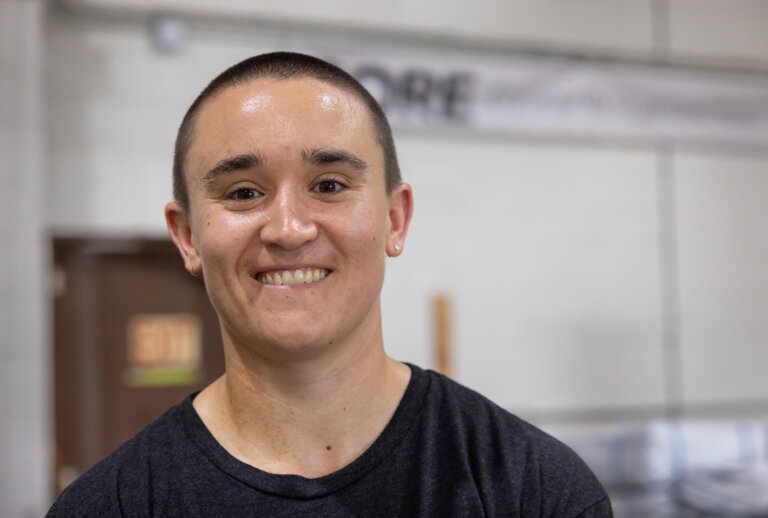
Driven by her passion for working with people and supporting communities in times of crisis, Becca is building her career in disaster response. She has previously served as a wildland firefighter at a national park and volunteer at a refugee center in Greece. She also holds a master’s in public administration.
Becca is used to picking up and responding at a moment’s notice, so she was eager to sign up to volunteer with CORE to gain more experience in the field. She joined our team in Ascension Parish and helped remove water-damaged materials from inside people’s homes and install tarps on their roofs. Shortly after the response closed, Becca pivoted and moved straight into a support role with FEMA. Becca emphasized the significance of volunteering in both her personal and professional life. The experiences have broadened her technical skills and confidence in the field, and also provided her with the opportunity to connect with people who are similarly committed to uplifting communities in need.
“No matter your background or experience, I think anyone can benefit from volunteering. Seeing people that have been impacted and how grateful they are to see anyone that is listening to them and giving them their time and attention, it’s pretty huge.”
This summer brought a wave of headline-making hurricanes: Hurricane Beryl was the earliest Category 5 storm to form in the Atlantic; Hurricane Helene’s harrowing 500-mile path of destruction resulted in more than 200 deaths; Hurricane Milton inundated a coast barely recovered from Helene. Communities in the Caribbean, in Louisiana, Florida, Georgia, and North Carolina are exhausted.
With each response, CORE’s teams followed the lead of our regional staff, local partners, and community members to address the unique needs of the most marginalized communities. Their commitment to uplifting their community both in emergency contexts and beyond inspires and propels us to continue serving those most in need.
HIGHLIGHTS
GET TO KNOW US
GET INVOLVED
MEDIA

REGIONS
California, Georgia, Chicago, North Carolina, New Orleans, Puerto Rico, Kentucky, Navajo Nation, Washington, D.C., Hawaii
INTERNATIONAL
CORE is a charitable 501(c)(3) nonprofit organization. Federal tax ID: 27-1703237.
© 2024 | CORE – Community Organized Relief Effort | +1 (323) 934 4400
910 N Hill St Los Angeles, CA 90012